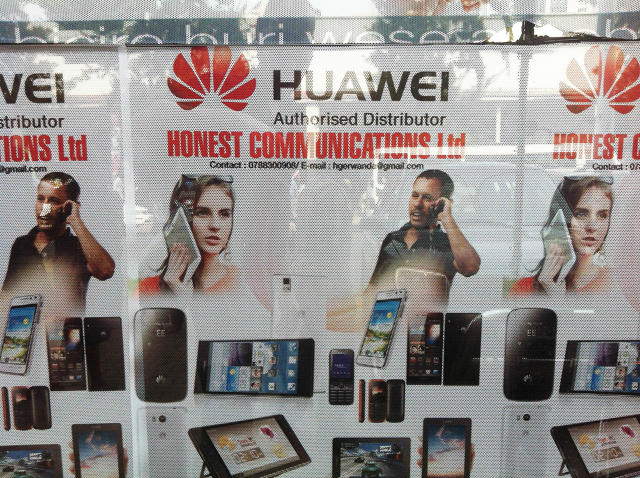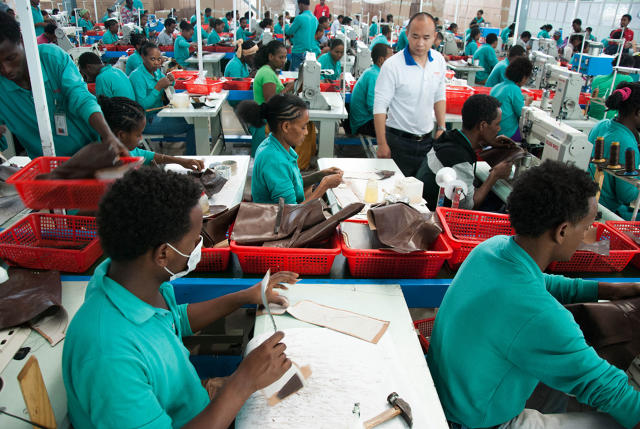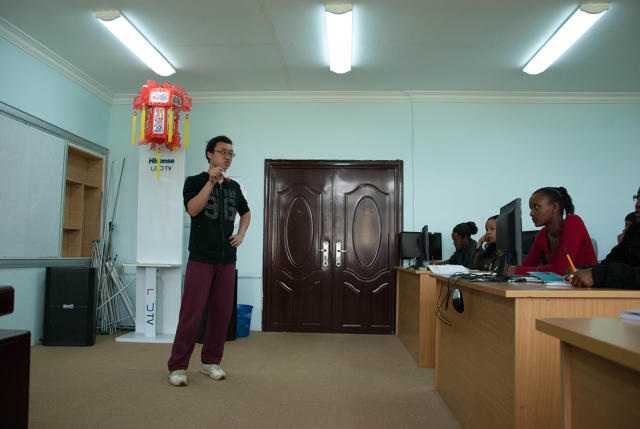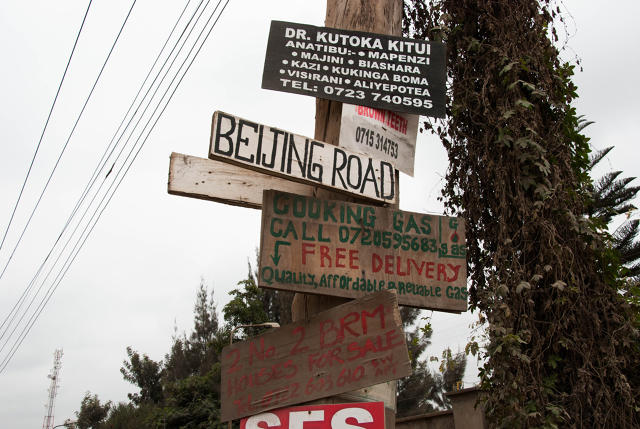In Africa, Chinese Developers Are Building A Mini-China
A photo investigation of the Chinese-sponsored apartments, highways, factories—and even entire cities—that are sprouting up in Africa at an astounding pace.
Across Africa, Chinese developers are building highways, light rail systems, apartment buildings, and entire cities. A new photo series from the Go West Project, a think tank focused on emerging megacities, looks at Chinese influence in seven African cities.

"We know the Chinese urban model, and we also know that China's trying to export that model to other parts of the world," says Michiel Hulshof, a Netherlands-based urban strategist who collaborates with Daan Roggeveen, an Shanghai-based architect, on the Go West Project. "Africa's sort of striking in that sense."
Next to Lagos, Nigeria, Chinese developers have built a walled-off "special economic zone"—basically a separate city, with separate rules designed to attract investors—based on a model they've used inside China for the last 30 years. After Shenzhen became a special economic zone in the 1980s, it went from a small town of 20,000 to, by some counts, 15 million today.

"Now Shenzhen's the factory of the world," says Hulshof. "And that special economic zone is now being tried out in Africa."
Hulshof and Roggeveen visited two of the new developments, and also went to an meeting in London where a Chinese developer pitched the idea to investors. "The story is, 'Lagos is a very dangerous, chaotic city where nothing works, it's corrupt, so we're going to do that completely different,'" Hulshof says. Inside a locked border, the new development will have its own airport, its own reliable electric grid, its own harbor, and even its own police force.

In another special economic zone outside Addis Ababa, Ethiopia, the researchers visited a Chinese shoe factory with Chinese managers, Chinese equipment, and local workers. (Interestingly, the quality control team is Brazilian, the shoes are being made for an American brand, and are being sold to Europeans.)
Chinese influence also goes beyond physical infrastructure. Now it's possible to pick up a copy of China Daily, China's state-run newspaper, in some African cities, and watch CCTV, China's state-run news channel. Some cities have Chinese language schools, and some African students are given grants to go study in China. In markets, Africans can buy Chinese bikes and mobile phones that aren't sold in other parts of the world.

Development is happening quickly, though not as quickly as megacities grew in China. Of 50 economic zones planned nine years ago, only six have been built. Developers are struggling to adapt to the differences in various African cultures and differences in governance.
"I think from Chinese point of view, the biggest danger is corruption in African countries," says Hulshof. "But another problem they will run into is democracy . . . which makes it more difficult to develop in the top-down way that Chinese companies are used to. If people own land, you can't just kick them out."
Though the pace and scale of Chinese influence has been criticized by some—Hillary Clinton has called it "new colonialism"—the researchers saw that the people they spoke with in Africa were generally positive about the changes, at least for now.
"It's too early to tell how this will turn out," says Hulshof. "But it's quite interesting."
No comments:
Post a Comment
Comments always welcome!